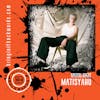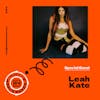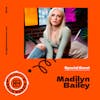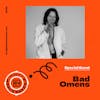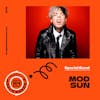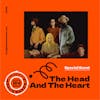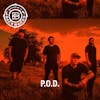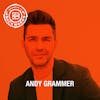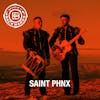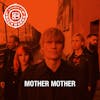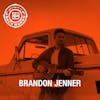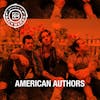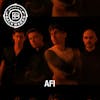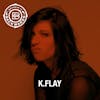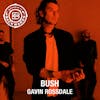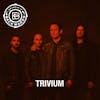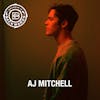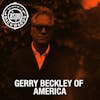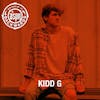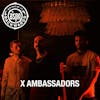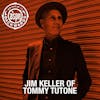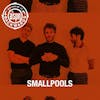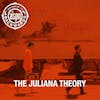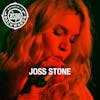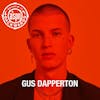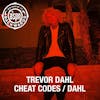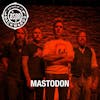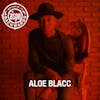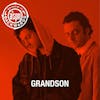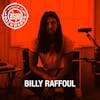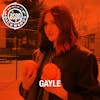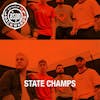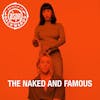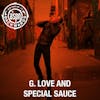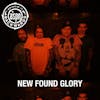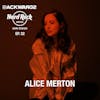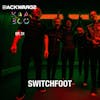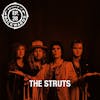Interview with Kublai Khan TX
We had the pleasure of interviewing Kublai Khan TX over Zoom!
Hardcore's brainiest brawlers Kublai Khan TX released their new EP, Lowest Form of Animal, via Rise Records.
The Sherman, TX quartet—Matt [vocals], Nolan Ashley [guitar, vocals],...
We had the pleasure of interviewing Kublai Khan TX over Zoom!
Hardcore's brainiest brawlers Kublai Khan TX released their new EP, Lowest Form of Animal, via Rise Records.
The Sherman, TX quartet—Matt [vocals], Nolan Ashley [guitar, vocals], Eric English [bass], and Isaac Lamb [drums]—quietly emerged as a fiery force since their 2008 formation straight out of high school. They built a devout following through airtight consistency on Balancing Survival and Happiness [2014], New Strength [2015], and Nomad [2017]. The latter impressively tallied over 6 million cumulative streams with “The Hammer” surpassing 2.6 million on Spotify and “Antpile” exceeding 1.1 million. Meanwhile, acclaim came from Metal Hammer, Alternative Press, New Noise, and more as the boys toured relentlessly.
We want to hear from you! Please email Tera@BringinitBackwards.com.
www.BringinitBackwards.com
#podcast #interview #bringinbackpod #KublaiKhan #KublaiKhanTX #NewMusic #zoom
Listen & Subscribe to BiB
https://www.bringinitbackwards.com/follow/
Follow our podcast on Instagram and Twitter!
https://www.facebook.com/groups/bringinbackpod
We'd love to see you join our BiB Facebook Group.
What's going on? It is Adam. Welcome back to bringing it backwards. A podcast where both legendary and rising artists tell their own personal stories of how they achieve stardom. On this episode, we had a chance to chat with Matt of the band coupla con over zoom video. Matt was born in Indiana, but raised in north Texas. And he talks about how he got into music. Started off on the drums in high school was the drummer of his first two bands ended up then becoming the singer. And that's when coupla con formed. He talks to us about the first show that kugel con ever played, which was a sellout show right across the street from his high school at a boys and girls club. He tells us about getting signed to artery recordings and kind of the bad experience that they had over there. 1 (1m 12s): And then eventually signing with rice records and all about this new EAP, which is called the lowest form of animal. It would be amazing if you check out our YouTube channel and Facebook page, we've got a ton of interviews up there. Video interviews with a bunch of different artists over a thousand interviews are up there. It'd be awesome. If you subscribe to our channels like us on Facebook, follow us on Instagram, Twitter, and Tech-Talk at bringing back pod. And if you're listening to this on Spotify or apple music, we would love it. If you follow us there and hook us up with a five-star review, 2 (1m 46s): We'd appreciate your support. If you follow and subscribe to our podcasts, wherever you listen to podcasts, 1 (1m 52s): We're bringing it backwards with coupla con. Our podcast is about human and your journey and music. And we'll talk about the new IP you have coming on as well. 3 (2m 2s): Sound good? 1 (2m 3s): Awesome. Awesome. So first off, honored, she talked to me about where you were born and raised. 3 (2m 10s): Oh, well I was born in Indiana, but I really don't remember too much of it. I moved to Texas when I was about two or three, somewhere around there. And that's all I really remember. I remember very few things about Indiana, but I was raised in Texas. So that's where my grandma lived and everything. And that's where me and my mom moved. And I'm glad we moved there instead of stayed in Indiana. To be honest with you. 1 (2m 36s): Yeah. Well, tell me about what part of Texas were you in? Was that in Sherman where the band started? 3 (2m 43s): Yeah, how's that typically in the town next door. It was called Denison, but it's all, it's all the same shit. We just, we said we were from Sherman because Sherman was a county seat and it just made more sense. More people knew where Sherman was and Denison, but looking back on it now, if, if I would've known that the band would have gone a little bit further than, you know, what we had planned on, I would have just said Dennison, because once you leave Texas, nobody knows where the fuck Sherman has ears. So 1 (3m 9s): I'm not going to lie. I had to check to see where what's myself, it's north. Right. It's like a border 3 (3m 18s): River. 1 (3m 19s): Okay. In Oklahoma. Right on. So what was it like growing up there? I mean, was it a small town? 3 (3m 26s): Yeah, it was. I think the population, by the time I moved out, it was about 18,000 people. 1 (3m 31s): Wow. 3 (3m 33s): Yeah. It was a trip really wasn't too bad, but it's growing things are booming. The more that Dallas starts to expand and then move the metroplex northward, they're going to eventually build everything up to the red river. I would assume, especially with them putting a new casinos in right across the river. Cause that's just, it's pulling all kinds of money to those areas that really didn't have too much money to begin with. 1 (3m 55s): That's interesting. Yeah. In dialysis, massive. I have family there and it's crazy to think like how big like Dallas Fort worth area is like, oh 3 (4m 4s): Yeah. 1 (4m 6s): Oh yeah. I mean, it can take you nearly over an army and over an hour, right. To get across, like from one end to the other. 3 (4m 14s): Yeah. It's crazy, man. I used to work and live in Dallas and I would on paper. My job was only about 10 to 11 minutes away, but it would be rare that it wouldn't take me less than 40 to 45 minutes to get to my job. 1 (4m 31s): Oh, wow. It's the traffic. Is that bad? Huh? 3 (4m 33s): Yeah. That was just that many people on the road at all times. 1 (4m 37s): Yeah. Yeah. Well I'm in Sherman or outs. The outskirts of it. What was the music scene like? 3 (4m 45s): It was actually thrive in man. It was, it was pretty crazy. We, we had several little venues. We had a lot of national acts come through over time and you'd be shocked, man. The first show that, that our band ever played, we played at the boys and girls club across the street from my high school and it sold out a 300 people. So it was, but that was collected. That was Sherman Denison, Southmayd, Sadler, Duran, everybody from Oklahoma coming down. Like it was a pretty, pretty wide group of people, man. It, people wouldn't think that there'd be like that, you know, but you go flipping over some rocks and there's a lot of bugs, you know? 1 (5m 23s): Yeah. And I mean, as you said, that was your first show to sell up 400 tickets. That's huge. 3 (5m 29s): Yeah. It was a wild on man and that's, I've been in two bands previously and man, we couldn't even get 10 people to give a shit about us, but that was back when MySpace was a thing. So we recorded three songs under Quba con first, and then we released those and there were people all the way up into Dallas that were listening to that shit and it kinda kind of set off pretty quick. And they, yeah, that first show, cause we weren't even really gonna play shows, but there was a little bit of buzz. So when we played it, we got on it with a couple of other bands that had a pretty good draw out in the area. And yeah, I wish I still had the photos, man. They're probably somewhere lurking around, but it was, it was a wild time to see that first show. I was still in high school man got out of class and one played that show 1 (6m 11s): Really? What year? In high school? Yeah, 3 (6m 14s): I was a senior. 1 (6m 16s): Okay. Let's still, I mean, so to leave your, your school and go across the street and play what a 400 seater or 400 capacity. 3 (6m 25s): Yeah. I mean, it was like I said, it was a boys and girls club. It was two, two separate rooms that were conjoined and yeah, man, it was, it was definitely nothing that we had expected because the VFW was the main place to play. And there was a band as a pop punk band and from, from Chicago kid Liberty. 1 (6m 46s): Oh yeah, they were, 3 (6m 48s): They were pretty big there for a minute man. And they fucking pack that shit on that VFW. And that was way bigger than the fucking boys and girls club. And we eventually migrated over to the VFW and Sherman and started playing there with them. And that's when things really started to crack off. Cause we'd have, like I said, people coming from Dallas and Fort worth, driving an hour to come see us and you know, this was fresh out of high school kind of shit. So it worked out pretty well. 1 (7m 15s): Yeah. That's incredible. Well, how did you get into music originally? 3 (7m 21s): Honestly, just examined or somebody. I had a friend named Ian that we'd always hang out. His house was kind of like the center point for everybody. And he had like a guitar and a drum set and all this shit. And I learned how to play drums prior to that, I'll just play like red, hot chili peppers and let that one on shit like that. 1 (7m 38s): Well, how did you learn drums real quick if you, I want to touch on that for a second. 3 (7m 43s): That was a self-taught I had a buddy named Justin and he had some little old bullshit BW kids and he sold it to me for real, real cheap in high school. And I set it up in the, in the living room and I was, that was back when iPods were thing and I just play with the iPod and I put the headphones in and just taught myself how to play it. Cause I'd always had rhythm. So it wasn't too crazy. And this was before YouTube was a thing. And any of that shit. So it was, it was a trip, but I never got that. Good. I got good enough to join a band, but not good enough to where I could have sustained myself in a band. 1 (8m 22s): Okay. So you were, were you the drummer and the first bands you were in? 3 (8m 25s): Yeah, first two bands. I was in, I was a drummer and then at the tail end of the second band, I got a microphone and they started having me doing backup shit, but I kind of was shitting all over the actual vocalist until we switched. He was better at drums and I was, but I was better vocals. So that's how that started. And then yeah, start started Cooper con. 1 (8m 48s): Wow. And what was it like, you know, going from playing shows behind, you know, as a, as the drummer to now you're the front guy. 3 (8m 57s): Oh, it's the best man. You don't have to carry anything. You know, 1 (9m 2s): I don't have to have a truck to hear all the drunk. 3 (9m 5s): Yeah. I definitely don't miss those days playing around. And it was my opinion. It was so much more stressful. Like the amount of stress that's on a drummer. Cause they're the backbone of the whole situation. The drummer, the whole bands, man. That's all I was saying. Like there's no way I would've made it in music, problem statement, drums. I would've never, never left Sharman, but yeah. That's why we, we outsourced our drummer from super far away, man. He was about 15 minutes up the road in Oklahoma and he was a whole lot better than us 1 (9m 39s): Crossing state lines to get your drummer. 3 (9m 41s): Yeah man. I mean, he was actually, he came to the first kubelet con show that we played and that's how I met him. 1 (9m 50s): And 3 (9m 51s): He was in a separate band at this point in our bands used to play together. Cause we were kind of similar styles and yeah, we basically just kind of roundabout scalp. Cause we were like, dude, like we're going to start playing Dallas and shit. We're going to start playing these other towns. Like I know you want to do that. And your band isn't really doing that. So you want to be our drummer, like you can do both, you know, eventually scooted out of the Vandy was in and took <inaudible> as the main band he was doing. And then, you know, slowly started playing one Oklahoma and then more into Louisiana, Kansas. So next thing I know we're doing tours and it's like pretty crazy shit, man. 1 (10m 31s): Yeah. Wow. Okay. So like from high school, did you, I mean that show up being so big right out the gate and having these songs on my space, like how did the MySpace thing happened? It would just was one of those things that landed in, in the days of MySpace. Cause a lot of bands came out of that era. 3 (10m 49s): How old are you? 1 (10m 50s): I'm 37. So I know my space. I can even do Friendster. Let me tell you about that one. 3 (10m 56s): Yeah. My time. But yeah, we had the whole coded layout and all the, you know, the cool thing where you can share the music to the page and all that. And it was, it was pretty trippy. I remember. Oh yeah man. We had all our friend bands that we used to play with. It was like a band from Oklahoma called shag Harbor. It was a R dudes and never in ruin. They were from Dallas and yeah, it was, it was, it was a nice time for music, man. It was a lot more fun. There's a lot more, you know, laid back. 3 (11m 38s): Like it's just, I look back at all these dudes that are starting out now and doing these tours that are in their early twenties and I'm like, dude, like, fuck, they're having fun. You know what I mean? And it's like, we're doing great tours now and getting paid a lot and I'm just like, oh man. Yeah, 1 (11m 55s): Yeah, yeah. Wow. Let's say from the MySpace page, you know, to kind of, you know, building the band up, what would you say like your first big moment for aside from, you know, having a salad for your first show, that's huge, but what'd you say like the next time 3 (12m 10s): That first sell our show was a fluke man. I don't want you to think that we just kept playing, sell out shows like that was our big bus and then, you know, we'd go play in and Tulsa for six people. Like, you know what I mean? It was, we had a lot of hometown 1 (12m 26s): And 3 (12m 26s): All that, but that was one of those things. I can't remember. We fucking played a show in Oklahoma and we had a couple of t-shirts. We had no table and we ended up stealing a table, we're playing on like a school or something. Like it was some kind of like theater arts center. We stole a table from them and that table was our emergency table for like the next like four years. Yeah. And I mean that table, I'm pretty sure it went all the way up to Seattle with us at one point, I guess it was just the whole 1 (12m 60s): Thing. 3 (13m 2s): Oh yeah. Like we never planned on any of this and there was never like a, yeah, we're going to do this and we're going to get big. It all just kind of just like tripped over itself. And the next thing you know, it's like, it just kind of happened. It's like, it's like getting somebody knocked up is the best way to describe like how this band came about. You know what I mean? None of us had a plan. We still don't have a fucking plan. We're just kind of doing it. And we've, we've learned a lot along the way and we know how to orchestrate ourselves, but it's like, yeah man, we should have never gotten as far as we have that's for sure. But it's all just been hard working and doing it because we've had the same team forever. And we're not one of those bands that, you know, goes polling favors or goes fucking asking people for shit. 3 (13m 42s): If we can't do it on our own, we just don't do it. That's why it's taken us a lot longer than some bands. But at the same time, like I think it's a, I think it's a lot better, man. 1 (13m 53s): Yeah. I mean, you guys are starting to rise records. You've had, you know, multiple albums and I'm, I'm curious, like what was it like when you signed that first deal with the artery recordings? Like, you know, being this band from, you know, a smaller town in Texas to now you've toured and you're, you know, you have a record deal and that's that must've been a big, big, big day for you all. 3 (14m 15s): Oh yeah, man. There is. And that's about all it was. I mean, it was, it was nice to be able to tell everybody back home like, Hey look at us man, or all you guys coming out. Like it was worth something like we got signed, we did all this. And then that label just fucked us up. So it's like, labels are bullshit, man. I don't give a fuck about that label, man. They, they didn't give a fuck about us, you know? And that's what I've tried to tell. A lot of dudes in younger bands is like, don't follow your nose. Don't sit there and think that these people have your best intentions in mind or that they really want to help your band. Like they just, the line is, is money. If they can make money off your band and they're not, they're going to use you up, they're going to ring you dry. 3 (14m 58s): And then it's just every man for himself. And that's exactly what they did. And that's why anytime I get an opportunity to talk about it, I don't, I don't, I don't get very excited about that first record deal because they didn't give a fuck. 1 (15m 9s): Okay. I'll move past it. And I'm sorry, I didn't, <inaudible> some trauma there. Yeah. That's horrible. 3 (15m 18s): Yeah. I'm not trying to make it seem like he did nothing wrong and I don't give a fuck. I just, it's just one of those things, I guess that's the reality that people need to hear. They don't need to hear like, oh man, it was all champagne bottles and getting late every night. Like they, it almost destroyed our band. 1 (15m 33s): Wow. Was it just like, I mean, I don't want to stay too long on it, but now I'm kind of curious because you have been open 3 (15m 39s): About it. I'm an open book. 1 (15m 41s): Wow. Yeah. I'm just curious like when, when you say that, like what was it that kind of turned you off to it? Was it like them, you know, fronting a bunch of money and then kind of being like, no, you guys owe us those cash. Like, I mean, I don't even know where to start with something like that. A band listening, you know, like, okay. I thought, I, you know, I thought I wanted to sign this deal, but then like, was it like a bad deal? Like, did they own your masters? Like how to kind of screw you? Yeah. 3 (16m 6s): Yeah. I mean, well, a lot of that stuff, man, it's just, we became a very well-oiled machine and we still are. And that's, that's one thing that we hold really close. In my opinion, we didn't need that label all day. They kind of just put us on the back burner. Like whenever, whenever our second record came out, which was, I'm pretty sure the worst selling record that we ever put out. They, they were motherfuckers that were like our actual fans that were like, yeah, we didn't even know this was a thing. We didn't know. You guys had a record and I'm like, yeah. You know why they didn't promote us. They didn't do shit. Yeah. They didn't give a fuck. And it's, it's one of those things like, you know, people be, it's not, it's not necessarily anybody's ammo to give a fuck. 3 (16m 52s): But if, if you're making money off, what we're creating, you got damn better. We'll give a fuck. You know, 1 (16m 58s): You think that they would want to put you in the, in front of the right people. I mean, you had a record that, you know, alternative, the first record you put out, it looks like alternative press gave it, you know, one of the best albums of 2014 so far list. Like, I mean that's huge and alternative press, especially. I mean, there's still massive outlet, but to have people that many eyes on you in like 2014, when, you know, the thing was like, you know, juggernaut in the, in the industry like that, that you'd feel like that would set you up and they would be stoked to like really push the next record. But then to kind of just forget that's yeah. This bizarre. 3 (17m 35s): Yeah. And I mean, that's the whole thing is to the inner workings of that, that particular situation. We're just very, I don't even know how to position an unorganized and not just the, their head wasn't in it. And that's that. And my opinion is like, oh, that's, that's all good. And well, like you, you run your ship, how you want to run it, but I don't want to be chained to it. And that's unfortunately, what, what happened to us? We had to put out that other record with them. And by that time, the label was already thinking the guy who we knew that that ran into shit, he'd already bailed out. He'd dumped it on some other motherfucker. And that guy, he did what he could. 3 (18m 15s): I guess, 4 (18m 19s): Duncan has what you need to conquer the day. So if you want to go from, I don't got this to, I got this. Well then get this a bold, smooth espresso drink from Dunkin, like a layered velvety caramel macchiato, a rich chocolate mocha latte or a creamy nondairy oat milk latte because this day isn't going to conquer itself. No you're going to do that. Take a sip of you've got this with Dunkin espresso drinks, Porter ahead on the app cost earn rewards. America runs on Dunkin price and participation may vary 5 (18m 50s): Great news from rocket mortgage. You could unlock more casts than you realize from your home's equity with a cash out refinance today. In fact, in the last year, average home values have gone up nearly 20%. That means you can unlock thousands of dollars. And with rocket mortgage, you could unlock all that cash in less than three weeks, but you've got to act right now before rates go up because nobody knows how long these low rates will last. Put your hard earned money to work, make your life better. Build a home office, remodel your kitchen, or simply save that task for a rainy day today's rate on a 30 year fixed rate, mortgage is three and a quarter percent, 3.4, 8% APR. So you can lock in a great low monthly payment. When you're looking to unlock the cash in your home rocker camp, call 8 3 3 8 rocket today, or go to rocket mortgage.com to get started. 5 (19m 35s): That's 8 3, 3 8 rocket, or go to rocket mortgage.com 6 (19m 39s): Rates current as of 12, 12 21 copper copper commissioner condition equal housing lender licensed in all 50 states with less consumer access.org. Number 30 30 call (800) 490-1233 for this call doesn't cost information. 1 (19m 48s): Hey, everyone. We wanted to tell you about another music podcast that we've been loving. The broken record podcast from Pushkin industries, music industry icon, Rick Rubin, along with producer, Justin Richmond and authors, Malcolm Gladwell, and Bruce Headlands. Sit down with the artists you'd love for unparalleled creative insight into your favorite music. You'll hear revealing interviews with some of the most legendary figures in music like Neil young, Andre, 3000 Alicia keys and Bruce Springsteen. And you'll learn about up and coming stars like Michelle Zauner who talks about her big plans for her dreamy indie pop band, Japanese breakfast. This April, they're celebrating the red hot chili peppers, new album with John for Shantay Anthony Kiedis flee and Chad Smith, all in conversation with Rick Rubin. 1 (20m 36s): They share stories and songs from the new album and also never before heard insights about their decades, long dynamic and chemistry, listen to broken record, wherever, get podcasts. You cut out there for a second. I heard you say he did what he could, I guess. And then he left in 3 (20m 56s): My AirPods just died. So I just got you on speaker now, But yeah, now he did what he could. And I mean, he came out to one of our shows in California and he tried taking all the credit for it. And he like was talking to me and shit and was like, oh man, I'm just so glad. Like all this happened, like we were doing so good. Like all this stuff, like, is there anything we can do for you guys? And I just told them straight up. I was like, bro, you're fucking up. I'm like, you're not, you're not helping us out at all. Like why, why are you talking to me like this? Like you, you fucking came in here and save the situation, man. I was like, look around at this show, look at how many motherfuckers are at their show. Fucking nobody. I was like, we're not in a position to be fucking, like I said, my popping champagne bottles and acting like this is some shit like you got handed a sink and ship and I'm not, I'm not going to go down with it. 1 (21m 45s): Sure, Andy, and it sounds like you only had a two record deal. So at that point you guys could just wash your hands with the whole thing and, and start over, start over, but you know, carry on your, your way without having that, you know, anchor on you. 3 (22m 2s): Yeah. Our, our, our managers super good. He's, he's great to us. And he helped us really kind of avoid, you know, what was supposed to be certain deaths because every other man on that label, man, I don't even know what the fuck happened to him. 1 (22m 17s): I know they got acquired by like Warner or something at one point or, you know, I think maybe they just bought them and dissolved everything out. I mean, I have no idea what happened on that end, but because you were a part, it was a part of razor and tie I think right originally with like fearless and there's yeah, there's a bunch of bands. I think there was like a umbrella of like a lot of those label, like similar, you know, label starters. And then I don't know what happened. I think maybe that one just kind of went under or got bought out or I have no idea. 3 (22m 48s): I couldn't tell you either way. They, it was very unimpressive and whatever man, all that, all that hype had been built up in my mind and all this stuff that I thought it was going to be so great. I just got a real dose of reality and I don't regret it at all because we needed that reality check to keep us on our toes and be like, Hey man, nobody's going to give a fuck about your band. Like you are, should quit, quit thinking that other motherfuckers are gonna come in here and magic is going to happen because we just reverted back to our old grind. And that's where we've been ever since. I mean, even, even with the rise and stuff like that, like they've been a whole lot better to us, but if I'm being a hundred percent honest, like I don't, I don't particularly know who even is at the label now, you know? 1 (23m 32s): Yeah. I was going to ask you, what are you skeptical? And it came to signing another deal. 3 (23m 37s): Yeah. I'm always skeptical, man. And that's, that's when all the things, if it's just the reality of the situation and people get offended about it. That's, they're not, they're not too deep in this industry, man. Every, every person that I meet, unfortunately I just kind of just, I don't know, I kind of treat them all the same just cause like Bruce in the pudding man. And that's, that's why we work with who we work with because those are the few people that I think actually have our bands, you know, best, You know? Yeah. It is what it is. Rise is doing just fine for us. So it's like, don't fix it if it's not broken, you know, 1 (24m 14s): Great label. I mean, I know a lot of friends that are bands are on their label and yeah, I mean, to be 3 (24m 21s): The whole point with that is just, like I said, like that was part of the selling point for us getting on rise. Was there like, Hey, this isn't like a band that needs to be built. This isn't a band that, you know, needs a whole bunch of shit. Just let them do their own thing. Let them, let them continue the formula that they're going on and just promote them and just do your, do your shit for them. And then there'll be a nice little egg in the pocket. You know what I mean? So that's kind of probing. Cause like I said, none of us are geared that way. None of us think that way. So it's like I said, I couldn't tell you who all is on the staff there because they don't talk to me. I don't talk to them. It's, there's a big disconnect there because we're just very different people with very different MOS and shit like that. 3 (25m 7s): So I don't know. That's if I were talking to anybody that's younger about something like this, it would just be, you know, just fucking watch your back and just do your own work. Don't don't don't have somebody else come in and sign all your checks for you, you know, just do it all yourself. 1 (25m 25s): Yeah. No, that's great advice. I'm going to ask you a similar quote or I'm going to ask you pretty much the same question at the end of this interview. Cause that's always how I end it, but I'm curious like when it comes to, you know, you get on rise and I'm sure you got, they looking at some of the tours that you've done and, and in tours that you, one that you currently are, you're going to start here pretty soon. You know, it looks like they kind of hooked you up with some of the bands that they have on their label. And that must be nice to, to tour with similar artists and, and, and, and bigger artists. 3 (25m 57s): Oh yeah. I mean, that's, we're not picky really when it comes to tours, we'll talk with anybody and everybody, we, what we've usually done. And yeah, I mean, as far as touring with bands on the same roster, like that's always a good thing, you know, businesses business, any way you want to look at it. And if, if it, it kills two birds with one stone to have both of us on the same package, fine with us, I just down the road, give a fuck who it's with or who who's, you know, taking care of all of it just as long as it happens. 1 (26m 26s): Sure, sure. Was it difficult? I mean, obviously it was difficult, but what was it like coming into 2020 or you guys had put a record out in 2019 or are you able to, you know, really tore and support absolute? Or was it something that was released and then months later the 20 Hudson, everything shuts down. 3 (26m 48s): Yeah. I mean, we didn't really get to do a whole hell of a lot off of it, which is whatever, you know, I don't think anybody particularly affected this situation happened, but it was real kick in the nuts. But I mean, it's, it's, it's one of those things, man. Like you just can't can't and let it disrupt the formula. Like this is an unfortunate situation, man. And it's one that I think could have been easily circumvented, but don't make the rules, so. 1 (27m 22s): Sure, sure. Where do you, what about this? Like, well, the new IEP was that something that had been started after 2020. And did you guys work on that like within the past two year and a half or was the record something that you had kind of going and then 2020 happens and then you're like, okay, now what? 3 (27m 44s): No, we just wrote it in the middle of the panic. Cause that's the thing is we don't really write music. Like we, we don't like, we don't have stuff that we have done. Like we, we go to the studio with some like vague ideas and we just write these records in the studio. So that way it's just there there's no big, long drawn out process. It's most of it happens within a matter of a week to two weeks. No. 1 (28m 15s): So you just want to have ideas that you guys come and go, okay. We have a handful of ideas. Let's book some studio time and go in and see what we can turn out. 3 (28m 25s): Yeah. That's literally been the last four records. 1 (28m 28s): Wow. 3 (28m 30s): Well, I can go in here. We got a little couple of rifts and an email and I have a couple of ideas for some lyrics and then we just plug in and go for it. But we've had the same four guys for so long now that the chemistry is just there. We know our sound, we know exactly how to create what we want to create. So it's, it's, it's a pretty streamlined process. It's not, it's not one of those things where we got to just pick our brains and go fucking crazy. Like we have those moments for sure. But it's like whenever we wrote absolute, we wrote that record in about a week and a half, like Yeah, we came to the studio with about two and a half songs and even those two and a half got, you know, really queued up and manipulated and changed in comparison to what they were when they were brought in. 3 (29m 17s): So it's like, I don't know. I know, I know a lot of bands that they'll spend a year to six months writing a full record and it's like, we just don't, we can't do that. The only problem we ever did that with was the one that was the least successful record we've ever done. And then the most successful record we've ever done, we wrote it in a week. So it's like, the way we operate is this better if we just in and give all our time and just write it all at once, rather than try and drag it out over time, you know what I'm saying? 1 (29m 50s): Sure. Yeah. I mean, you guys, it sounds like you have a formula where you have some stuff and then you can go in and actually focus on writing the record together. 3 (29m 59s): Yeah, exactly. Like we, we know our sound, we know what people want to hear. We wouldn't know, you know, we know what we want to do and you just do it. There's there's, there's no, no big secret to it, you know? 1 (30m 15s): Yeah. But a lot of bands can't do that. I mean, I would imagine it being hard if it was me, I'm not a songwriter or anything, but like going into the studio and being like, okay, we have this time book, like what are we going to do? I would, I mean, I'm sure a lot of people are probably thinking like, well, like I have to go in there like ridiculously prepared and know exactly what we're going to do and you know it and have everything really, you know, have all your ducks in a row, but to go on there and just kind of write and create, that's really an interesting way to do it. 7 (30m 49s): What forges commitment and America's Navy you'll think about quitting from the drills, the aches cold, but shipmates face. Every challenge is one every push to the edge, every call to defend. Because out here we're part of something bigger, a force that never quits the sea for just commitment and every sailor America's Navy forged by the sea discover commitment@navy.com. 8 (31m 19s): Hi, I'm Flo from progressive being a baseball fanatic like me can be stressful. It's not all sports points and touchdowns. So progressive is going to help you take your mind off your team for a moment, instead of thinking about how they miss that gold point score. Think about the name, your price tool from progressive letting you choose coverage options based on your budget, unlike your team that missed the end zone net area. Well anyway, hope this distraction about Progressive's name, your price tool was helpful. It sure kept me from thinking about all those penalty balls, 9 (31m 45s): Progressive casualty insurance company and affiliates, price and coverage match limited by state law. 3 (31m 49s): Yeah. I mean it's, and it's definitely not the, the, I don't know if normal is the right word, but it's, it's different strokes for different folks. There's a lot of bands couldn't do that. And there's a lot of ways that other bands, right. That we functionally couldn't couldn't do it. Like we just, the four of us together are better just striking while the iron's hot. And that way we can pump out a lot of stuff when all the ideas are very warm, but like, yeah, if we came into the studio with 20 fucking tracks, I'd be like, no, we're not doing this. Like that's too much like streamline this shit, pick out and fucking four and focus on those. 3 (32m 30s): Like, and we've never done that. We've never written that way. Like the closest we've done to that is probably a month or two. Before we go to the studio, we'll start telling our guitar player, no one like, Hey, start riding riffs. And we'll just have email after email of like, I think last record for the one we did for the EAP, we had like 40 or 50, just little loop rifts, just, here's a, Chuggy one, here's a fucking stringy one. And then we usually will find about three rifts that compliment each other and that's the whole song and you're done. You just sit them together. You find the transitions, you make it cool lyrically, you do all stuff. 3 (33m 10s): But if people really break down our music and listen to it, it never goes above about two to three risks. They're just played differently on the drums or they're muted on the guitar this time or, well, this time it's just based, like it's all the same shit. You know what I mean? It's really, really simple stuff. And, but that's how we've kind of carved ourselves out is we never had a second guitar player. We were never able to have intricate leads or other stuff we had to just focus on. Well, what can we do rhythmically? It's exciting. So that's what we did. We just treated the bass player. Like it was a second guitar player and just focused everything we have on the groove. 1 (33m 49s): I love that. I love that. And the song, the most recent one, you guys put out Swan song, you've got the singer from terror on there. 3 (33m 57s): Yep. 1 (33m 58s): Tell me about that. How has that relationship form and how is it getting Scott on the song? 3 (34m 5s): I'm gonna have a bad ass man. He's a cool ass guy. Like we, we supported them on a tour a while back. It was, it was before the pandemic and shit. We were on tour with them when the pandemic, when the lockdowns, I guess started we, we 1 (34m 24s): On the road. 3 (34m 26s): Yeah. We played two shows in the lockdown for days. We still played shows. How does that now the whole world shift and kind of just fucking promoters being like, yeah, we have to pay you. And we're not going to not have these shows because otherwise I'm not paying you out of my pocket. So, you know, not naming any names or saying any stuff, but it's just like, just stuff happens. You know, we were able to find the shows and plans still. And kind of you ever seen independence day when you're trying to spaceship out of the bigger spaceship and the doors closing and then make it out right at the last second. 1 (35m 2s): Okay. Where you, I guess I don't really want to ask exactly where you were at in the country, but once everything started closed, that where any, it was like, did you know you sold a certain amount of tickets and not that many people were at the show. Like, did you see any of that? Especially with those last two, 3 (35m 19s): They were still fucking cracking off, man. Cause motherfuckers were frequent that they weren't going to be able to go to shows 1 (35m 25s): The 3 (35m 26s): State we were in was one of the first states to shut down. But I don't think it was the first and whenever people were getting told like, Hey, you know, two weeks to those spread or do all this people were just like, well, fuck, I'll be stuck inside two weeks. Let's fucking, let's go out and do some shit. So they were still crazy good shows and all that stuff. And then two weeks turned into two fucking years and then here we are. 1 (35m 49s): Right. I know it's been wild. It's been wild. Well, it looks like you guys have done some shows since, you know, since people, you know, it's, it shows them kinda came back, right? 3 (35m 59s): Oh yeah. We were one of the, one of the first bands and a lot of these areas, the tour back, because when we did the first tour back that we did, I think it was in August. 1 (36m 12s): Oh wow. August, 2020. 3 (36m 16s): Pretty sure it was don't quote me on it. Cause I'm not good at fucking, But it was something like that. It was a while back, but yeah, like a lot of the venues we were playing the same people that were coming out, their last show was us with terror, for the shutdown and their first show back was our headliner in the same city. So it's like, it was like, we just basically, weren't going to let it stop for us. As soon as the green light, we were like, yeah, we're gonna go back on tour. Like we didn't want to stop in the fucking first place, but here we are, you know, 1 (36m 54s): And now you're going to hit the road again, which is, this is a huge story you're doing coming up and you're starting here in Nashville. I'm in Nashville. I'm originally from San Diego and I saw you're playing Selma too, which is a killer venue. This looks like a pretty amazing tour. 3 (37m 7s): Yeah, man. It's going to be a good one for sure. It'd be 10 (37m 10s): Ooh. 3 (37m 13s): Yeah, it'll be, it'll be one for the fucking memory books, man. 1 (37m 17s): Yeah, for sure. For sure. And then the records coming out April 1st, so you guys will be on tour when, when the album comes out. 3 (37m 26s): Yes, sir. I think that'll be the second day. First day I think is in Nashville. 1 (37m 29s): Yeah, it is. Yeah. So you play day one in Nashville, Brooklyn ball. And then you're playing in St. Louis as the, you know, record comes out. 3 (37m 38s): Do you 1 (37m 38s): Guys do anything like different or special for like a rec? Do you do like the release, those was like a release party or is it just like, Hey, we're here in St. Louis and the records out today. 3 (37m 49s): We've never had like a release thing. It's just whatever city we're in. We're just, there it is. You know what I mean? We just put it out and it's a lot different now because with streaming it's like motherfuckers, aren't driving in their car to the record store to go buy the new coupla con record. Like they'll just put it on their phone and listen to it while they jog, you know, 1 (38m 11s): But 3 (38m 12s): A whole lot simpler to have a release now and it'd be just worldwide. So it feels pretty, pretty good on that. You know, we'll probably have some barbecue or something if we're in St. Louis and we just celebrate, but yeah, it'll be good, man. I'm excited about that high hopes. It's just an EAP. We'll see where, where, where it goes to, but it's a, it's a good tour to be releasing it on and 1 (38m 37s): That's amazing. Well, thank you so much, Matt, for doing this. I appreciate it, man. 3 (38m 41s): Yeah. I appreciate your time and your conversation and it's been nice, man. 1 (38m 45s): Yeah, I got one more, one more for you before I let you go. 3 (38m 49s): Sure. 1 (38m 50s): If you have any advice for aspiring artists. 3 (38m 55s): Oh man. Let me think for a second. Cause there's always the stupid fucking cliche answers and just like, oh, how are your dreams? If anything, one thing I would tell these motherfuckers straight up and is, this is something that now I'm only just now doing, but I wish I would have done 10 years ago is focused on the band. Like put your fucking balls into it and really make it work, but lock down a fucking trade or something to like a career. Cause like that was the silver lining of the pandemic was I had never had enough time to get a real job. 3 (39m 38s): I'd only ever done construction and other shit like that. Cause that's all I could do. So it was kind of like, you know, I came out of the lockdown with a barber's license and now I can fucking work anywhere. I want wherever I want. And it's fine. I have a career for the rest of my life now and it's going to make having the band a lot easier. So that's the one thing that I feel like motherfuckers don't tell you that really helps is like focus on your band, but also focus on your future because you could end up like me 10 years down the road, whenever the fucking world shits the bed and you get told your tours are done. So your income's over and you start bagging groceries or Kroger. I did that and there was no shame. Wasn't like I said, I'll work any job ever, but it's like, it was a wake up call and a reality check that I desperately needed. 3 (40m 23s): And now I'm working on getting my second license with a tattoo apprenticeship.
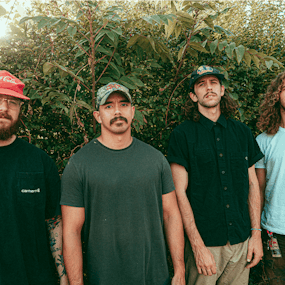
Matt Honeycutt
Kublai Khan are a metalcore quartet from North Texas with an aggressive, punishing sound that combines monstrous riffs and thrashing blastbeats with thoughtful lyrics that address issues such as racism, depression, and addiction. Not to be confused with the '80s speed metal band of the same name, Kublai Khan issued their punishing debut full-length, Balancing Survival and Happiness, in 2014.
The group consists of guitarist/vocalist Nolan Ashley, vocalist/lyricist Matt Honeycutt, bassist Eric English, and drummer Isaac Lamb. After forming in 2009, they self-released their debut EP, Youth War, in January of 2011. The group built up a fan base through solid regional and national touring, and eventually opened for bands such as the Acacia Strain, Fit for a King, and Texas in July. The group signed to Artery Recordings in early 2014, releasing their debut full-length, Balancing Survival and Happiness, that spring. Kublai Khan toured Europe with Obey the Brave in the spring of 2014, and appeared at the Impericon Festival in Germany. The group's second album, New Strength, appeared on Artery the following year. In 2017, the band inked a deal with Rise Records and issued their third studio long-player, Nomad. the group continued to push against the sonic boundaries of metalcore on 2019's relentless Absolute.
Kublai Khan TX will release their new EP, Lowest Form of Animal, on April 1, 2022 via Rise Records.
Featured Episodes
Here are some great episodes to start with. Or, check out episodes by genre.























